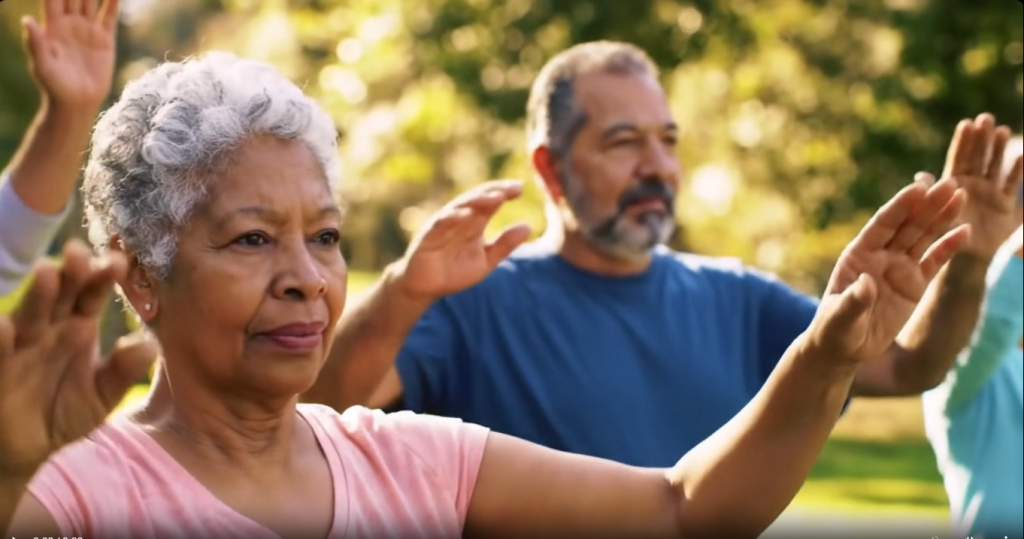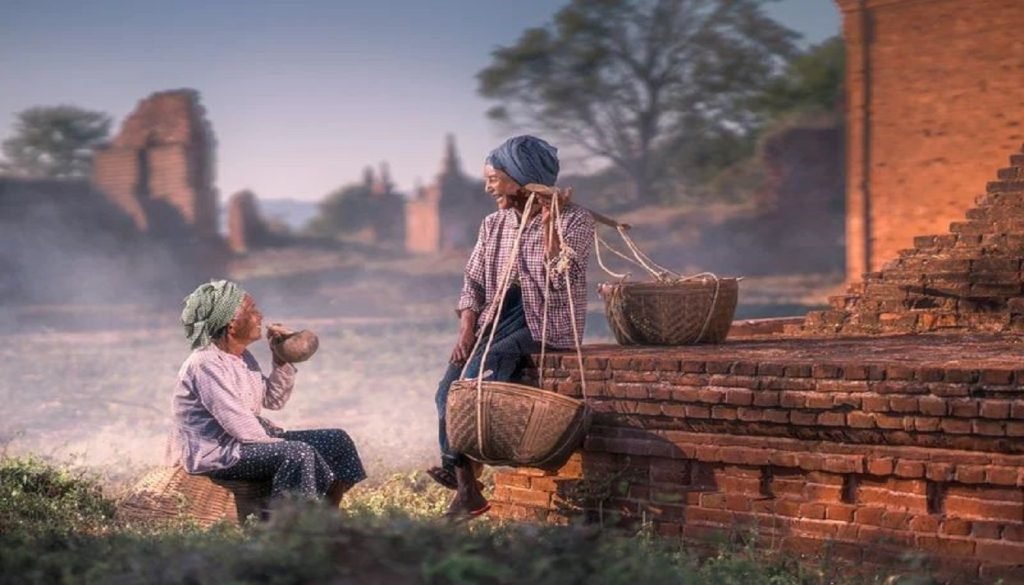- Okinawa, Japan
- Ikaria, Greece
- Sardinia, Italy
- Nicoya Peninsula, Costa Rica
- Loma Linda, California (Seventh-day Adventist community)
Each of these places has unique cultural practices, but they share some surprisingly consistent lifestyle habits.
But let’s not stop there—longevity isn’t exclusive to these five regions. Across Africa, especially in parts of Ethiopia, Ghana, and Nigeria, elders live long, vibrant lives deeply rooted in tradition, strong family ties, and natural living. It’s time to widen the lens.
Understanding The Secrets of Longevity
What is Longevity?
Longevity refers to a long life span, especially when living free of chronic illnesses or disability. It’s not just about living longer but also about living well. As more people across the world strive to live healthier and age more slowly, the need to understand what contributes to longevity becomes essential.
Why Some People Live Longer
Studies have shown that longevity isn’t just about having good genes; it’s about creating environments that foster health and well-being. In places like Okinawa (Japan), Sardinia (Italy), and Loma Linda (California), the people experience a significant increase in life expectancy thanks to their lifestyle choices. These regions provide valuable insights into how diet, exercise, and community play essential roles in aging well.
The Aging Process and Longevity
As we age, our body undergoes several changes, from decreased muscle mass and bone density to slower metabolism and increased inflammation. These changes can lead to various health issues like heart disease, diabetes, and cognitive decline. However, lifestyle factors such as regular exercise, nutrition, and mental engagement can mitigate these effects and slow down the aging process.
The Secrets of Longevity
Whole-Plant-Based Foods As Secrets of Longevity

A nutrient-dense diet is crucial for longevity. People in Blue Zones tend to consume plant-based foods rich in vitamins, minerals, and antioxidants. A balanced diet that includes plenty of fruits, vegetables, legumes, and whole grains reduces the risk of chronic diseases like hypertension and diabetes. Read also: Lower Blood Pressure Naturally and Diabetes Mellitus
For the African context, traditional diets consisting of foods like millet, sorghum, yams, beans, leafy greens (e.g., moringa), and fruits like mangoes and papayas contribute to healthy aging. Dr. Elizabeth Nyamayaro, a senior advisor at the United Nations, affirms, “African diets are full of nutrients that enhance longevity, particularly when the foods are grown locally and consumed fresh.”
Pro Tip: Incorporate more plant-based foods into your diet while reducing reliance on processed foods and red meats.
Regular Physical Exercise- A Secret of Longevity

Physical activity is one of the most vital components of a long life. In regions with the longest-lived populations, people remain active throughout their lives. They engage in activities like walking, gardening, and community work. Read also: Exercise Without a Gym
In many African cultures, physical activity is naturally integrated into daily life through work in the fields, walking long distances, and engaging in community activities. Research published in the Journal of Aging and Physical Activity confirms that regular moderate activity boosts cardiovascular health, improves mental well-being, and increases lifespan. PMC
Pro Tip: Make physical activity a part of your daily routine. Consider traditional African dances, walking, or farming activities as a way to stay active.
Strong Sense of Purpose- A Secret of Longevity
Having a sense of purpose is associated with increased longevity. In Blue Zones, people with strong life goals often live longer, healthier lives. This sense of purpose can come from work, family, hobbies, or spiritual practices.
In Okinawa, they call it “ikigai”—a reason to wake up in the morning. In Costa Rica, it’s “plan de vida.” Whether it’s caring for grandchildren, leading community rituals, or mentoring youth, elders in longevity hotspots stay mentally and socially engaged.
African cultures often emphasize the importance of community service, care for the elderly, and passing down knowledge, providing individuals with a sense of purpose. Professor Adebayo Ogunlesi, a Nigerian sociologist, observes that “in African culture, elders who contribute to the community are celebrated, which reinforces their sense of purpose and well-being.”
Mama Jane Ncube, 96, from rural Zimbabwe, shared with a local health worker:
“As long as I can teach the young ones how to make our traditional medicines, I still have work to do. That keeps me alive.”
Pro Tip: Engage in activities that give you a sense of purpose, whether through your work, family, or community involvement.
Effective Stress Management As Secret of Longevity
Stress is one of the leading causes of chronic health issues, including heart disease, diabetes, and high blood pressure. Stress does exist in every community—but we must have ways to release it. Daily prayer, naps, gardening, storytelling, and social rituals are key.
In Africa, communal laughter, song, and dance aren’t just for celebrations—they’re powerful stress relievers. Modern life might be hectic, but we can still borrow these calming rituals. Even a 15-minute daily wind-down routine can make a big difference. Read also: Managing Stress in the Always-On Generation
Dr. John M. Lynch, an expert in stress research at the University of Washington, highlights, “Social support in African communities often reduces stress, leading to improved physical and mental health.”
Pro Tip: Incorporate relaxation practices such as prayer, meditation, or journaling to relieve stress.
Strong Social Connections- A Secret of Longevity

People in the world’s longest-living communities have close-knit social connections. Socializing with family, friends, and community members is essential for emotional well-being and contributes to longer life expectancy.
In Africa, extended families are the norm, and social bonds are strengthened through regular gatherings, rituals, and community celebrations. These strong ties not only provide emotional support but also create an environment of collective care.
Compare this to the loneliness epidemic in more industrialized societies, and it’s clear: longevity is a team effort. Relationships are health insurance for the soul.
Pro Tip: Invest time in building meaningful relationships with family, friends, and your local community.
Quality Sleep As A Secret of Longevity
Quality sleep is critical for physical and mental health. Sleep allows the body to repair itself, regulate hormones, and improve brain function. However, sleep deprivation is common in modern societies, contributing to various health problems. Read also: Benefits of Good Sleep for Mental Health
In many African communities, there is a natural rhythm to sleep, with a focus on rising with the sun and resting at night. This traditional approach to sleep, aligned with the body’s natural circadian rhythm, promotes better rest.
Pro Tip: Aim for 7-9 hours of sleep each night, and try to establish a consistent sleep schedule.
Natural Environments and Minimal Toxins Exposure- A Secret of Longevity
Clean air, sunshine, and natural water sources play a quiet but crucial role. Whether it’s the mountainous terrain of Sardinia or the forests of Cameroon, these regions are not overly polluted and people spend more time outdoors.
Prof. Adebayo Okonkwo, a public health expert in Nigeria, adds:
“Urbanization is making us forget that nature is our original pharmacy. Longevity often starts with simply breathing cleaner air and walking barefoot on the earth.”
Harmful Habits Avoidance- A Secret of Longevity
To live longer and healthier, it’s essential to avoid harmful habits like smoking, excessive drinking, and poor eating. These habits can lead to chronic diseases and decrease life expectancy.
In many African cultures, alcohol consumption is moderate, and smoking rates are generally lower than in Western countries. Encouraging the younger generation to embrace a lifestyle free of harmful habits can contribute to a longer life.
Pro Tip: Reduce or eliminate smoking and excessive alcohol consumption to protect your health.
Embracing Healthy Aging Practices- A Secret of Longevity
Incorporating holistic health practices like regular check-ups, preventative care, and emotional wellness can help slow down the aging process. Preventing illness is far more effective than treating it later in life.
In Africa, traditional medicine and practices such as herbal remedies, massage, and physical therapies play a crucial role in healthy aging. Dr. Nnaemeka Ezepue, a Nigerian health expert, points out, “Traditional healing methods often complement modern medicine in enhancing longevity.”
Pro Tip: Visit your doctor regularly for check-ups and incorporate natural remedies when possible.
Strong Mental Engagement As A Secret of Longevity

Mental engagement, through lifelong learning, reading, or social interaction, is essential for maintaining cognitive health as we age. People in Blue Zones remain mentally active throughout their lives, which helps prevent dementia and cognitive decline.
In many African societies, storytelling, oral traditions, and community discussions keep individuals mentally sharp well into old age.
Pro Tip: Challenge your mind through puzzles, reading, or learning new skills
Simplicity and Gratitude As Secrets of Longevity
In nearly every longevity hotspot, you’ll find a slower pace of life and a deeper appreciation for the little things. Joy isn’t found in material wealth, but in connection, nature, healthy diet, and spiritual peace- all tenets of the secrets of longevity.
Can We All Live to 100?
Not everyone will live to be 100, but most of us can live longer, healthier, and happier lives by adopting the practices of those who do. The wisdom of these communities—whether in rural Tanzania or a village in Ikaria—is that longevity isn’t about chasing youth. It’s about fully embodying the secrets of longevity, aging gracefully, and honoring life at every stage.
Frequently Asked Questions
- Can diet impact how long I live?
Yes, a balanced diet rich in whole foods like vegetables, fruits, lean proteins, and healthy fats can reduce chronic disease risk and promote longevity. Diets like the Mediterranean diet are often linked to longer lifespans. - Does sleep affect longevity?
Absolutely. Consistent, quality sleep (7-9 hours per night) supports cellular repair, cognitive function, and immune health, reducing the risk of age-related diseases. - Can stress management help me live longer?
Yes, chronic stress accelerates aging by increasing inflammation and cortisol levels. Practices like meditation, yoga, or mindfulness can lower stress and promote longevity. - Are genetics the main factor in determining lifespan?
Genetics play a role, but lifestyle factors like diet, exercise, and stress management have a significant impact. Studies suggest lifestyle accounts for about 70-80% of longevity outcomes. - What role does social connection play in longevity?
Strong social ties are linked to longer lifespans. Meaningful relationships reduce stress, combat loneliness, and provide emotional support, all of which benefit health. - Can supplements or anti-aging products extend life?
Some supplements, like omega-3s or vitamin D, may support health, but evidence on anti-aging products is mixed. A healthy lifestyle is more effective than relying solely on supplements.
Final Thoughts on Secrets of Longevity
Longevity isn’t a luxury; it’s a lifestyle. Whether you’re sipping herbal tea in Ghana or dancing to highlife music in your living room, the secrets of longevity are already within reach. Let’s learn from the wise, honor our roots, and embrace every moment with joy.
Which secret of longevity strategy do you plan to implement this week? Let’s know in the comments, becuase we’d love to hear from you.
This post is for educational purposes only; Therefore, consult your doctor before making any health decision.
Kindly Subscribe, Like and Share this post.





Pingback: Top 10 Natural Beauty Remedies for Nigerians